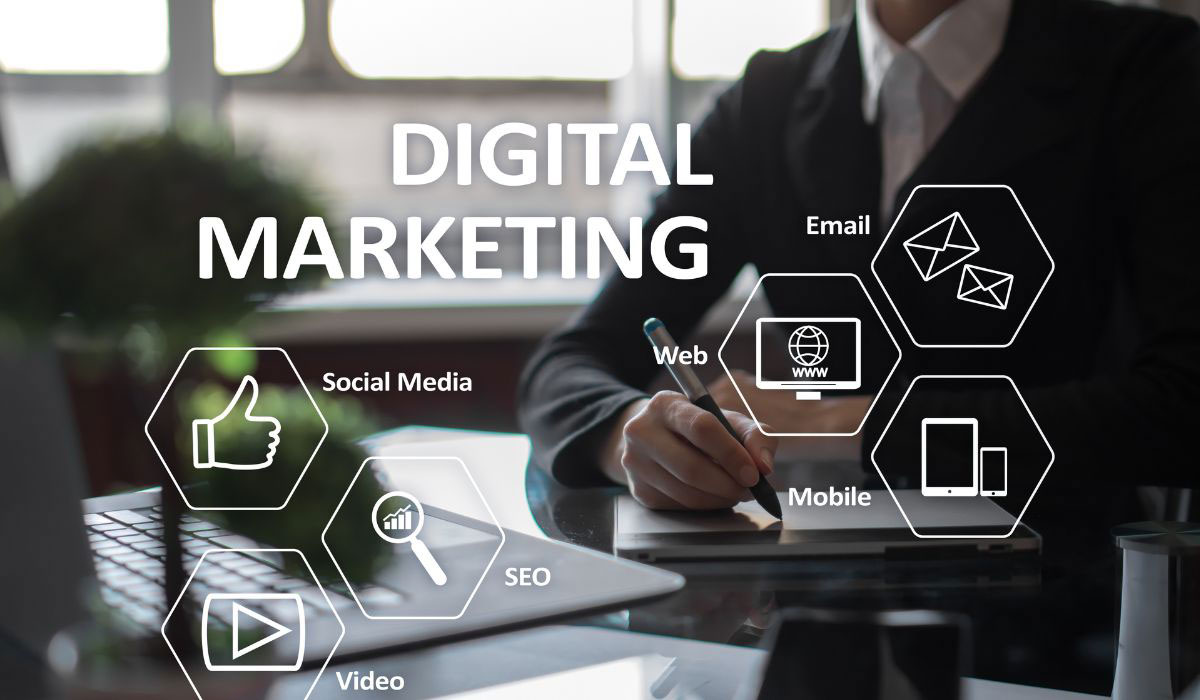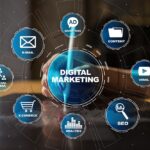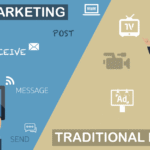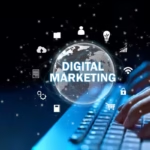How to Become a Digital Marketer Expert in 2025
In 2025, digital marketing is not just a skill—it’s a core competency for modern professionals. With the rapid evolution of technology, user behavior, and platform algorithms, becoming an expert in this field requires a strategic, informed, and hands-on approach.
This comprehensive guide outlines a clear, professional pathway to mastering digital marketing in today’s competitive environment.
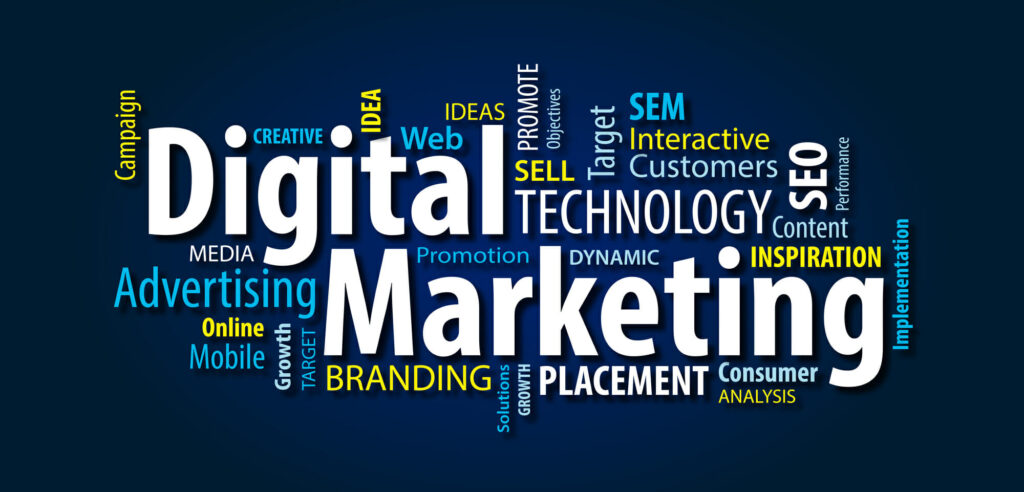
1. Develop a Strong Foundation in Digital Marketing
Begin by understanding the core disciplines that define the digital marketing landscape:
- Search Engine Optimization (SEO)
- Content Marketing
- Social Media Strategy
- Email Marketing
- Pay-Per-Click Advertising (PPC)
- Affiliate Marketing
- Marketing Analytics
A solid grasp of these pillars enables informed decision-making and sets the stage for advanced learning.
2. Select a Core Specialization
Digital marketing has become highly segmented. Specializing in a focused area enhances expertise and career clarity.
| Specialization Area | Core Focus |
| SEO Strategy | Keyword research, technical SEO, on-page optimization |
| Content Marketing | Content planning, creation, distribution |
| Social Media Management | Community building, platform algorithms, content formats |
| Paid Media (PPC) | Campaign setup, budget allocation, ad testing |
| Email Marketing | Segmentation, automation, engagement metrics |
| Web Analytics | Data interpretation, performance tracking |
Start with one primary area, then expand into adjacent skills.
3. Learn from Verified Educational Platforms
Choose learning resources that are regularly updated and reflect current best practices. Seek structured programs with:
- Practical assignments and case studies
- Industry-recognized certifications
- Mentorship or peer learning opportunities
Examples of trusted platforms:
- Coursera
- LinkedIn Learning
- Meta Blueprint
- HubSpot Academy
- Semrush Academy
Avoid outdated tutorials ensure content reflects the current digital environment.
4. Build Real-World Experience
To stand out in 2025, theoretical knowledge must be backed by application. Hands-on experience can be gained through:
- Managing a personal blog or website
- Assisting startups or local businesses with digital campaigns
- Creating and scheduling social media posts
- Running small-budget ad campaigns
- Writing and publishing SEO-optimized articles
- Analyzing campaign results using analytics tools
Practical exposure not only builds skill but also forms the basis of a professional portfolio.
5. Understand Content and Search Experience Strategy
Today’s search algorithms prioritize content that is helpful, user-focused, and trustworthy. Key areas to focus on include:
- Crafting original, high-quality content
- Focusing on user intent over keyword stuffing
- Structuring content with headings, lists, and clear formatting
- Optimizing for mobile responsiveness and accessibility
- Writing with real expertise and clear explanations
In 2025, content must reflect authority, clarity, and value to both users and search engines.
6. Learn and Master Industry Tools
Efficiency and performance depend on your ability to use the right tools. Familiarize yourself with platforms across different marketing domains.
| Purpose | Tools to Explore |
| Keyword Research | Ahrefs, Ubersuggest, Semrush |
| Content Optimization | Surfer SEO, Grammarly, Hemingway Editor |
| Social Media Management | Hootsuite, Buffer, Canva |
| Analytics | GA4, Looker Studio, Hotjar |
| Email Campaigns | Mailchimp, Brevo, ConvertKit |
| Ad Management | Google Ads, Meta Business Suite |
Proficiency in these tools enhances campaign efficiency and data interpretation.
7. Strengthen Communication and Analytical Skills
Beyond technical execution, digital marketers must clearly communicate strategies, insights, and outcomes. This involves:
- Writing persuasive ad copy and blog content
- Presenting reports in a visually clear manner
- Explaining campaign objectives and ROI to clients or teams
- Using storytelling to make data relatable
Effective communication differentiates top professionals from average ones.
8. Stay Informed About Trends and Algorithm Changes
The digital landscape changes rapidly. Staying current ensures your strategies remain effective. Follow:
- Industry blogs and newsletters
- Webinars and expert roundtables
- Podcasts by leading marketers
- Trend reports from global research firms
- Social media updates and emerging platforms (e.g., Threads, X)
Set aside regular time weekly to review industry developments and adapt accordingly.
9. Create a Personal Brand
A well-defined digital presence builds trust and opens doors to new opportunities. Consider:
- Launching your personal website with a blog
- Sharing valuable content and case studies on LinkedIn
- Participating in industry conversations on social platforms
- Demonstrating your work process and results transparently
Your digital footprint should reflect professionalism, expertise, and credibility.
10. Build a Portfolio That Reflects Value
Your portfolio is your professional showcase. It should be organized and results-driven, including:
- Campaign objectives and outcomes
- Screenshots of dashboards or analytics reports
- Content samples (articles, social media creatives, etc.)
- Tools and platforms used
- Client or employer testimonials (when available)
A well-documented portfolio provides measurable proof of your expertise.
11. Seek Internships, Freelance Roles, or Entry-Level Positions
Practical exposure is essential, especially for beginners. To build experience:
- Apply for internships with agencies or startups
- Offer digital marketing support to non-profits
- Join freelancing platforms to gain project-based work
- Collaborate with peers on side projects
Each project adds value to your learning and strengthens your professional credibility.
12. Embrace Ethical Digital Practices
Long-term digital success relies on integrity and transparency. Ensure that your work follows best practices:
- Respect data privacy regulations
- Avoid misleading or manipulative content
- Disclose affiliations in sponsored material
- Use only white-hat SEO techniques
- Maintain transparency in performance reporting
Ethics in marketing ensures audience trust and sustainable growth.
13. Track Your Progress and Continue Learning
Digital marketing expertise is not a destination it’s a continuous process. Set quarterly learning goals such as:
- Mastering a new tool or platform
- Publishing original thought leadership content
- Attending workshops or conferences
- Earning an advanced certification
- Testing new strategies on your own projects
Regular progress reviews help you stay focused and informed.
Summary: Path to Digital Marketing Expertise
| Phase | Key Actions |
| Foundation | Learn digital marketing fundamentals |
| Specialization | Choose a focused area based on interest and demand |
| Practical Experience | Apply skills through real projects and internships |
| Tools Mastery | Become proficient in analytics, automation, and content tools |
| Portfolio Building | Document projects with results and testimonials |
| Trend Awareness | Follow industry news and platform changes |
| Personal Branding | Establish an online identity through content and credibility |
| Ethical Practice | Follow fair, user-centric, transparent marketing strategies |
FAQs
Q1: What qualifications are required to become a digital marketing expert?
There are no fixed academic requirements. Practical skills, certifications, a strong portfolio, and real-world experience matter the most.
Q2: Can beginners transition into digital marketing in 2025?
Absolutely. With a clear roadmap, consistent practice, and learning, individuals from any background can build a successful career in digital marketing.
Q3: How do I prove my expertise to potential clients or employers?
Maintain a professional portfolio, share case studies, publish content regularly, and collect testimonials or references that validate your results.

